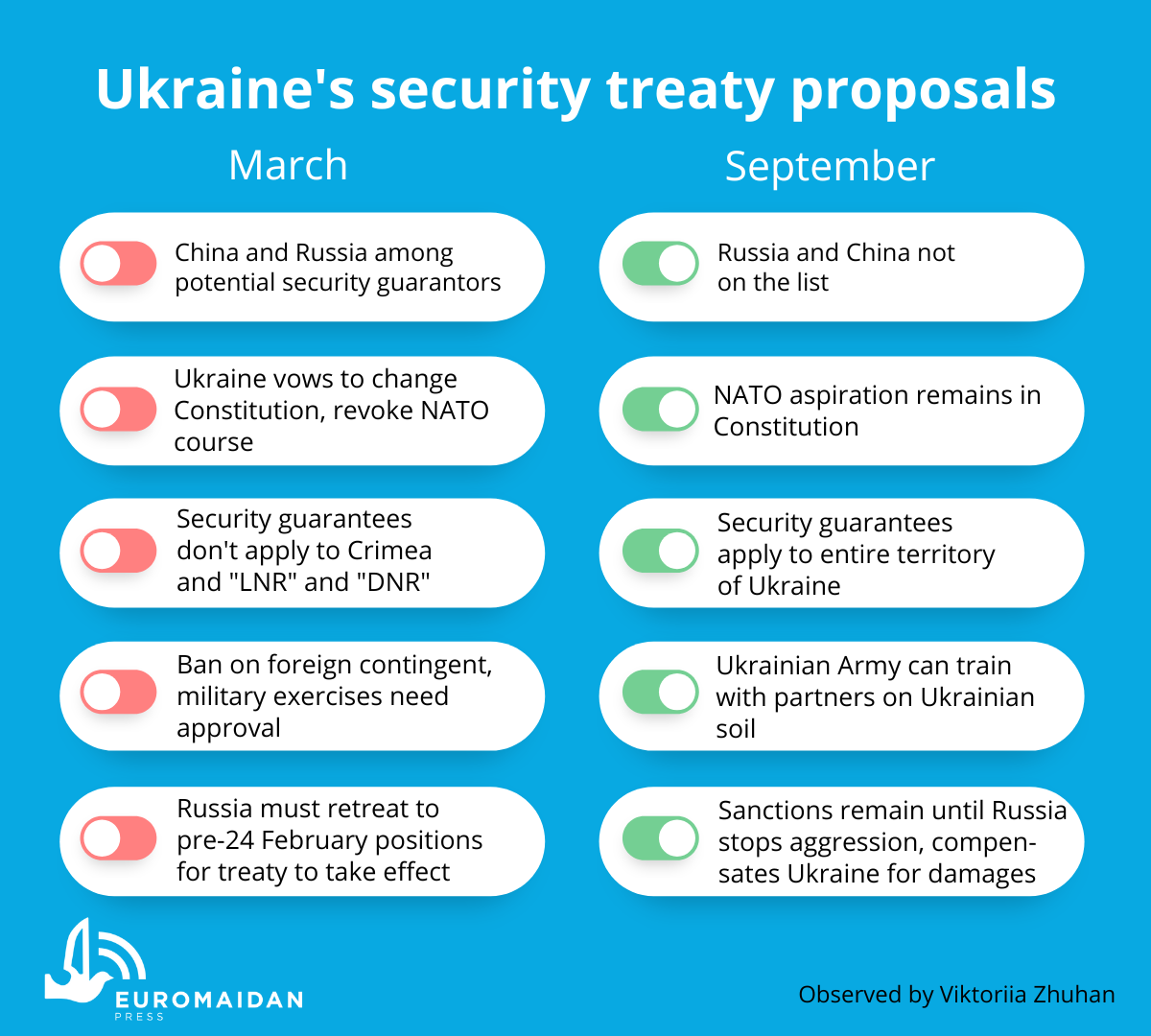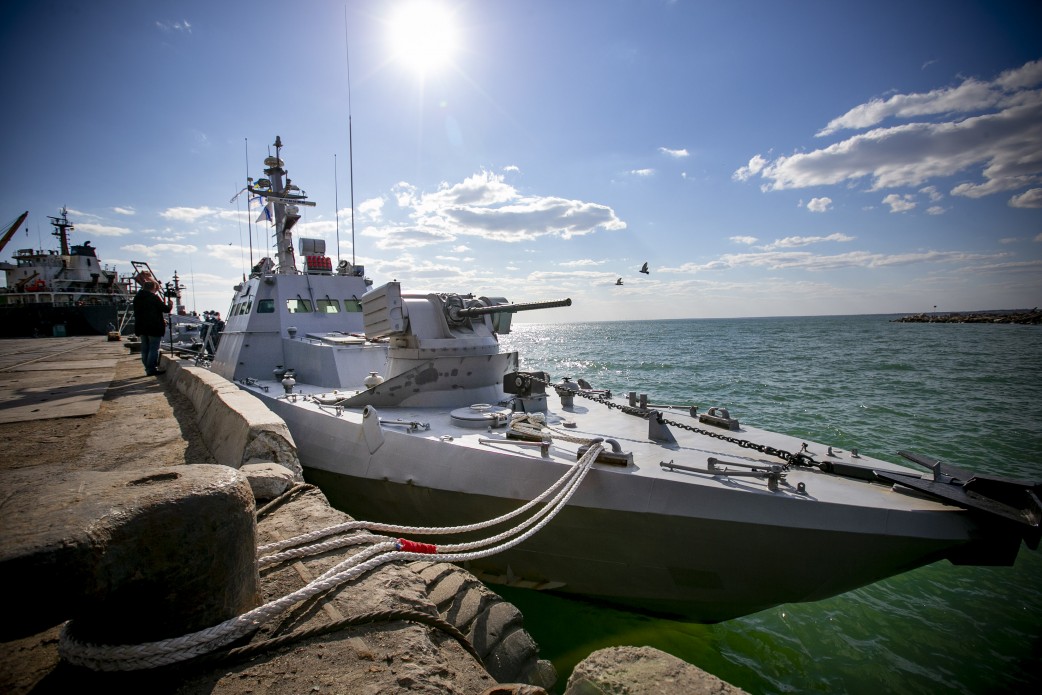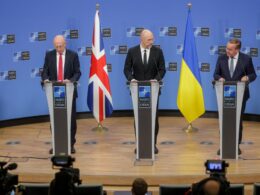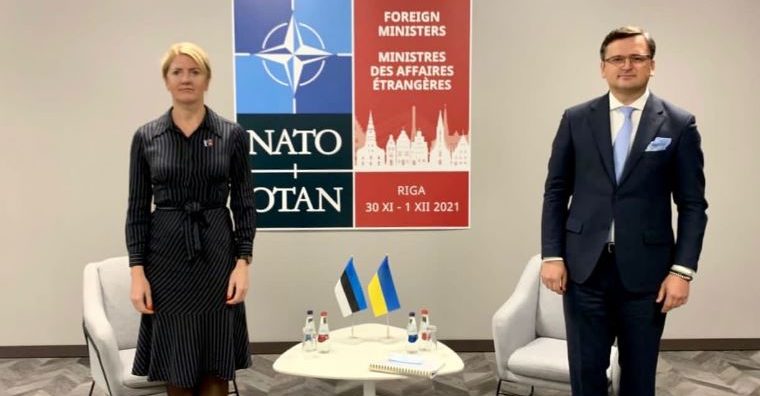On 13 September, the Ukrainian presidential office's chief Andrii Yermak and former NATO Secretary-General Anders Fogh Rasmussen presented proposals regarding international security guarantees for Ukraine, the Ukrainian President's website reported.
The nine-page document titled "Kyiv Security Compact" calls to create the Kyiv Security Treaty – "a joint document on a strategic partnership that unites Ukraine and the guarantor states."
The highly-criticized ideas of such a treaty were first floated back in March by the Ukrainian negotiators with Russia. Now the Yermak-Rasmussen Group has developed a new document that doesn't have the controversial items anymore.
At the presentation of the document, Yermak noted that Ukraine is successfully resisting the Russian aggression with the help of its allies,
"However, it should be noted that decisions often had to be made ad hoc, and the development of mechanisms for this assistance required a lot of time, which is always lacking in war and which is bought with pain, blood, and lives," the President's Office chief said.
Anders Fogh Rasmussen commented that the best way to ensure that Russia can never invade Ukraine again is "for Ukraine to have a significant military force,"
"The adoption of these recommendations will send a powerful signal to Vladimir Putin. This would show that our loyalty to Ukraine will not waver, that his war is futile. [...] Doing it right means laying a new cornerstone of European security. If this is not done, it will mean an aggravation of the crisis on European soil," the former NATO chief emphasized.
Later on that day, Present Volodymyr Zelenskyy commented:
"I believe that [the document] is prepared at a high level. This is the first, but very important step. These recommendations should become the basis of the future security agreement."
Meanwhile, Russian officials were predictably not pleased with the proposed treaty. The chair of Russia's State Duma Committee on International Affairs, Leonid Slutsky, said that "these are not security guarantees," but "a draft pact on the involvement of NATO countries and their allies in the war in Ukraine."
Slutsky also threatened Western countries in his statement:
"The project is against Russia, against a nuclear state. I hope that all of Kyiv's Western partners are well aware of what they are being asked to sign," he added.
Key points of the security treaty proposals
The key points of the presented document are:
- Ukraine needs resources to maintain powerful armed forces capable of resisting the Russian army and armed formations.
- This requires a "multi-decade effort of sustained investment" in Ukraine’s defense industrial base, weapons transfers, intelligence support, intensive training missions, and joint exercises under the EU and NATO flags.
- The security guarantees should outline a number of commitments undertaken by the group of guarantors together with Ukraine. Guarantees must be politically and legally binding based.
- The guarantees include preventive measures of the military, financial, infrastructural, technical, and information nature to prevent new aggression.
- "The Compact will bring a core group of allied countries together with Ukraine. This could include the US, UK, Canada, Poland, Italy, Germany, France, Australia, Türkiye, and Nordic, Baltic, and Central European countries."
- The recommended security guarantees aren't a replacement for Ukraine’s aspirations to join NATO, which is envisaged in the country's constitution.
First version of a security treaty, much more pro-Russian, was floated in March
In March, official Kyiv floated the idea that when the war ends, Ukraine should receive security guarantees from the West in order to prevent future Russian aggression.
The Ukrainian negotiators voiced their proposals at the negotiations with Moscow representatives back then, although many experts criticized such ideas at the time. The public perception of a proposed security treaty was mostly negative, as the security guarantees were meant to be a replacement for Ukraine's NATO course.
In April, after the liberation of Kyiv and Chernihiv oblasts and the emergence of evidence of Russia's actions with signs of genocide against the local civilians, support for negotiations with Russia began to gradually fade. However, the idea of security guarantees didn't disappear from the Ukrainian agenda but transformed under the influence of criticism from both experts and Western partners, European Pravda notes.
It became known in March that President Office's chief Andrii Yermak and ex-NATO chief Anders Fogh Rasmussen co-chaired an international advisory group for developing security proposals for Ukraine.
The Yermak-Rasmussen special group on issues of international security guarantees for Ukraine started its work on 1 July, tasked with preparing the concept of effective but realistic guarantees. Its work resulted in the final document Kyiv Security Compact published on 13 September.
Ukraine has strengthened its positions in the war against Russia which is reflected in the Yermak-Rasmussen Group's proposals as compared to the ideas proposed by the Ukrainian negotiators back in March.
The recommended security guarantees now apply to the entire sovereign territory of Ukraine including the country's parts currently remaining under the Russian occupation, Russian and China have been excluded from the list of proposed guarantors, the proposed treaty doesn't deny Ukraine's NATO aspirations.
The differences between the proposals of the Kyiv Security Treaty by Andrii Yermak and Anders Fogh Rasmussen in September and Ukrainian negotiating positions in Istanbul in March were noted by journalist Viktoria Zhuhan:
- March: Russia and China among potential security guarantors
September: Russia and China are not on the list - March: Ukraine promises to change the Constitution and guarantees not to join NATO
September: The aspiration to join NATO is enshrined in the Constitution, security guarantees cannot be an exchange for neutral status - March: Security guarantees do not apply to Crimea and ORDLO
September: The territorial scope of the guarantees extends to the entire territory within the internationally recognized borders of Ukraine. - March: Ban on placing a foreign contingent in Ukraine, military exercises can be conducted only with the consent of the guarantors
September: Joint training of the Armed Forces of Ukraine and partners on the territory of Ukraine with foreign instructors and advisers; guarantees should not exclude any form of support to ensure Ukraine’s self-defense - March: For the agreement to take effect, the Russian army must retreat to positions occupied on 23 February 2022, i.e. Crimea and Donbas remain under Russian control.
September: The guarantors must refrain from lifting the sanctions against Russia agreed since 2014 until Moscow: a) stops its aggression against Ukraine; b) guarantees that it will not attack Ukraine in the future; c) compensates Ukraine for damages caused during the invasion.
Read more:
- Ukraine is ready to negotiate with Russia only after withdrawal of Russian troops – Podoliak
- The specter of Budapest Memorandum hangs over Ukrainian negotiations, darkens the future of global security (Apr 2022)
- How realistic is the Ukrainian “peace plan”? (Mar 2022)
- No NATO aspirations and freezing occupied Crimea for 15 years: Ukrainian position at talks with Russia (Mar 2022)
- Zelenskyy demands Budapest Memorandum consultations (Feb 19, 2022)
- Macron in Kyiv denies discussing “Finlandization” of Ukraine with Putin (Feb 2, 2022)
- Ending Russia's international conflict best guarantee of security (Dec 2021)
- Budapest memorandum: non-proliferation diplomacy twenty years later (2017)
- West must honor security guarantees to Ukraine - Sikorski (Sep 2014)






